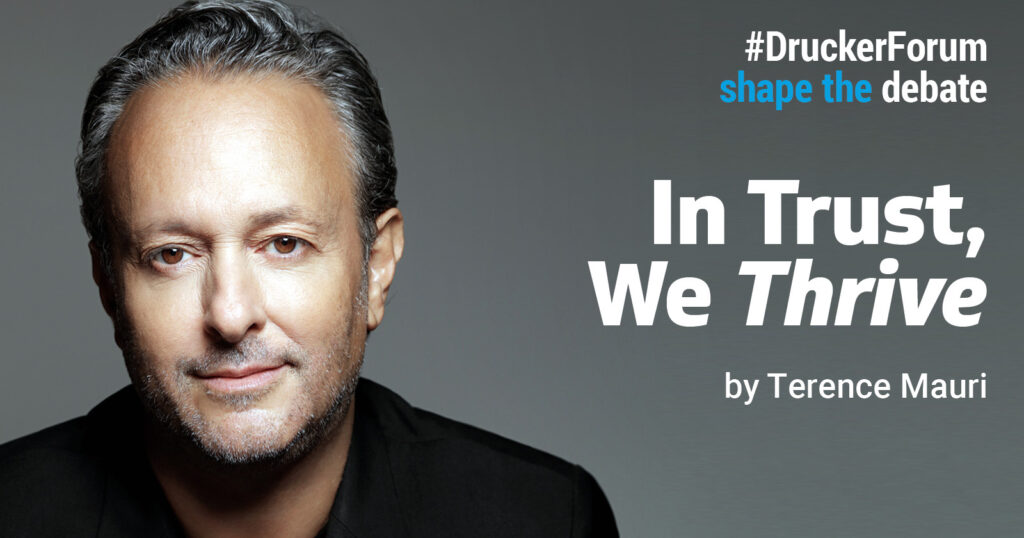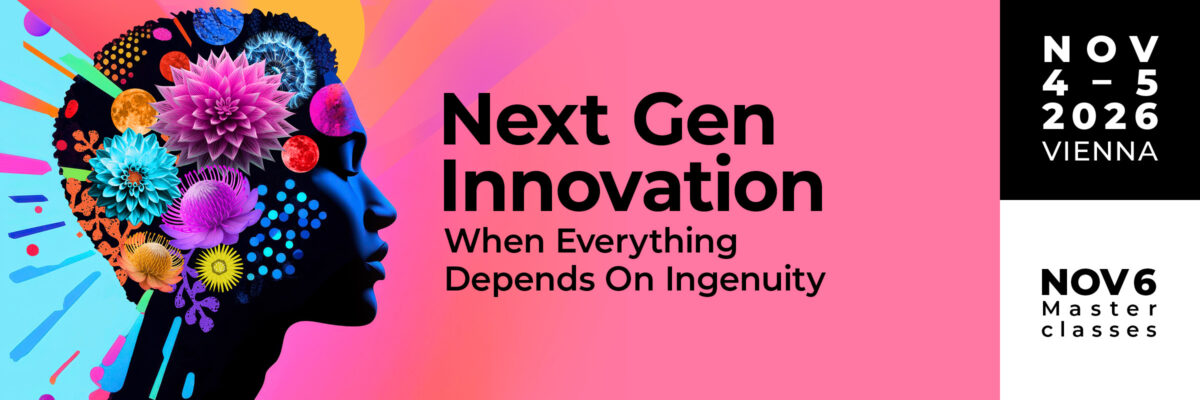
The relentless twin demands of executing for today while reimagining for tomorrow, mean that leaders are grappling with an accelerated phase of business disruption, with more than $41 trillion of enterprise value at risk. But is enough being done to strengthen trust and creative resilience, which I define as the curiosity to learn and the courage to unlearn? Learning helps us evolve and unlearning helps us as the world evolves.
The writer George Orwell, best known for his novels Animal Farm and Nineteen Eighty-Four, would have relished these times. Fake news, false facts, meme warfare, data breaches, tainted food and digital skulduggery – it’s not your imagination. More companies are operating at the edge of ethics and the commercial and human implications of truth decay are significant, with the impact on businesses alone estimated at over $7 trillion globally in lost productivity. According to Hack Future Lab’s Truth Decay study, 10 out of 15 industry sectors have reported a collapse in trust over the last three years, and there are plenty of examples to explain why, from the collapse of FTX, one of the world’s largest cryptocurrency exchanges with a market cap of $32 billion, to the culture of intimidation and secrecy at Theranos Inc., a biotech startup that was once valued at $10 billion.
Volatility on steroids
The collapse of Silicon Valley Bank (SVB) marks the biggest US bank failure since Washington Mutual during the 2008 financial crisis. With multiplying and overlapping disruptions on the rise, how can business leaders rebuild years of eroded trust and resilience? According to Hack Future Lab, 67% of the population do not believe today’s organisations are fit for purpose, and one-third of workers think their job will not exist in a few years, because of AI, robotics and automation. The politics of deglobalisation and global labour supply problems favour ChatGPT, Bard AI and the strategy of ‘AI everywhere’; mentions of AI in investor calls across 9,000 global companies have reached a new high. Now is the time to replace a ‘wait and see’ strategy with an ‘explore and disrupt’ one.
One of the clearest signs of creative resilience is reframing and rethinking our assumptions about what stays, what changes, and what goes. This matters because the complexity of issues is outstripping our human capacity to respond — leading to a high leadership tax (less time to focus on value creation, productivity and growth) and record levels of overload, distraction and risk of burnout. Creative resilience is a form of future readiness and an accelerant for turning volatility into a tailwind for strategic courage and trust.
Trust is your creative resilience multiplier
Money is the currency of transactions and trust is the currency of creative resilience. Trust-focused leaders champion the ‘spirit of trust’ principle by going big on context- and direction-setting and sense-making, starting with asking deep human-centric questions that make workers think hard rather than feel good.
- Is trust our #1 value? If not, why not?
- Do we minimise or maximise trust and responsibility?
- Do we commodify or humanise trust?
- Do we obsess over trust, not just metrics?
- Do we make the invisible visceral?
- Do we enable wise trust-based choices, not just the fastest?
- Do we prioritise trust alongside growth and scale?
The trust focus of companies such as Patagonia, Lego Group and Apple enables workers to explore early-to-exploit knowhow sooner and is the secret to a productive, flexible and happy workforce. It is defined by four DELTAs (Distinct Elements of Trust and Agency) which are:
- Inclusion Trust: Do I bring my unique and authentic self to work?
- No-Fail Trust: Can I take trust leaps into the unknown?
- Challenger Trust: Do I speak up (play to win) or stay silent (play to lose)?
- Team Trust: Are we better and wiser than the sum of our parts?
Scaling creativity over conformity is a shortcut to being forward-looking and adaptable in nature – yet leaders always overestimate the risk of trying something new and underestimate the risk of standing still. “Creativity is essential to resilience – it brings the new and unexpected ideas so necessary in times of disruption,” maintains Tim Brown, Co-Chair of IDEO.
No-regret decisions
Regret of inaction outweighs the regret of action by 3:1, and two of the biggest regrets are insufficient boldness and insufficient trust. Let’s not waste one of the biggest reframing opportunities of our lifetimes. As global growth stalls and organisations struggle to retain top talent, trust and creative resilience are key to building a sustainable and human-centric future. Leaders who want to harness the upside of disruption should reflect on whether their existing cultures, structures and leadership are built for trust and creative resilience. To change the game we need to make game-changing moves. Start by asking what ‘Future Success Headlines’ we want to be written about us and how we will make trust and creative resilience a central pillar for leading and thriving in an age of discontinuity.
Registration for Creative Resilience: Leading in An Age of Discontinuity at the Global Peter Drucker Forum, Nov 30 + Dec 1, 2023:
http://www.druckerforum.org/home/
About the Author:
Terence Mauri is the founder of management think tank Hack Future Lab, Entrepreneur Mentor at MIT, and Adjunct Professor at IE Business School where he speaks on leadership, strategy and culture. His latest book The 3D Leader: Take your leadership to the next dimension


Insightful read! Trust is indeed needed if organisations are to thrive in this unpredictable time we are in. When there is trust among a community of workers, these workers tend to be more resilient because everyone would want to really help in their own capacity, creatively. When there is lack of trust, the workers would be less resilient, and would be reluctant to give their best in solving problems during disruptions. Workers need to trust themselves; leaders needs to trust their subordinates too, and vice versa. This should be the first step to creative resilience.